Description
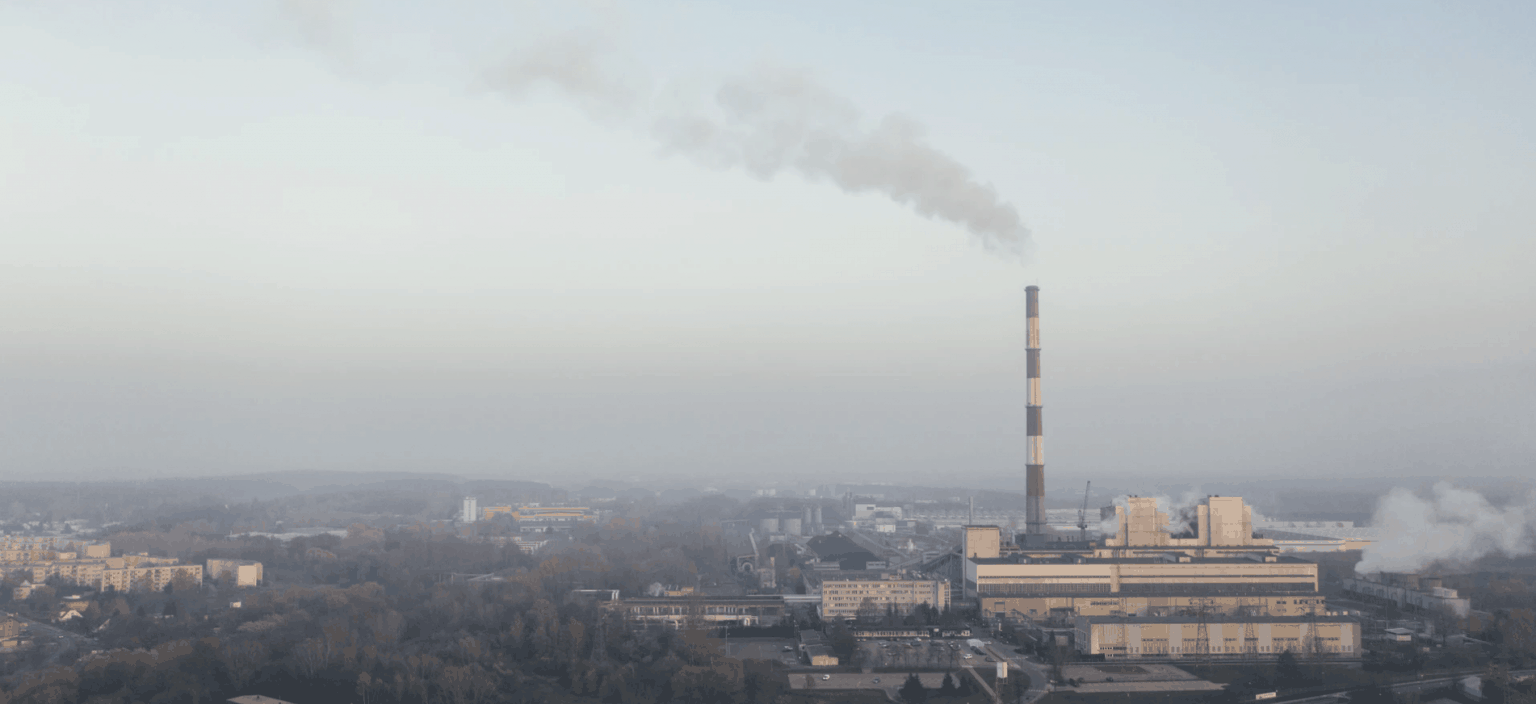
List of the 10 largest chemical companies in Germany
The chemical industry in Germany is an important branch of the economy and at the same time one rich in tradition. In 2018, the industry achieved a turnover of almost 203 billion euros with over 460,000 employees. All the larger companies have long been operating globally. The production program is diverse and divided into the following divisions: inorganic basic chemicals, petrochemicals and derivatives, polymers, fine and specialty chemicals, detergents and personal care products, and the pharmaceutical industry. Some of the major players were already established in the 19th century. Some of them were temporarily united in IG Farben AG, the world’s largest chemical company at the time. After the Second World War, IG Farben was crushed because of its role in the Third Reich. Here is an overview of the 10 largest German chemical companies today.
1. BASF SE, Ludwigshafen
BASF was founded in 1865 as Badische Anilin- und Sodafabrik. Today, the group operates more than 390 production sites in more than 80 countries worldwide and employs almost 118,000 people. BASF’s main plant in Ludwigshafen, Germany, is the world’s largest closed chemical complex, covering an area of over 10 square kilometers. BASF’s production program is divided into Chemicals (inorganics, petrochemicals, intermediates), Plastics, Performance Products, Agricultural Products and Nutrition. BASF is also a supplier to the automotive and construction industries with products made from basic chemical materials and is active in oil production and oil trading through Wintershall. This makes BASF one of the most important chemical companies in Germany.
Update 2022: The chemical company from Ludwigshafen has set the goal of achieving net zero emissions by 2050. Efforts are being made in various areas to achieve this, including process and technology changes but also the signing of power purchase agreements (PPAs) from renewable energies.
Update 2024: At BASF’s Annual General Meeting in April 2024, Martin Brudermüller will be replaced as CEO of the chemical giant. His successor will be Dr. Markus Kamieth, who has been on the Board of Executive Directors of BASF SE since 2017.
2. Bayer AG, Leverkusen
Bayer AG is the number 2 in the German chemical industry. However, the actual chemical production was spun off into the new Lanxess Group at the beginning of the 2000s. To this end, Bayer made one of the largest acquisitions in German corporate history by purchasing the U.S. group Monsanto. The Bayer Group has almost 104,000 employees worldwide. Bayer’s business is divided into three divisions: Pharmaceuticals (prescription medicines), Consumer Health (over-the-counter medicines, nutritional supplements and care products) and Crop Science (crop protection products). Animal Health is another “divisionless” business unit.
3. Henkel AG & Co. KGaA, Düsseldorf
When Fritz Henkel founded the detergent factory Henkel & Cie in Aachen in 1876, he laid the foundation stone for a global corporation. With brands such as Persil, Ata, Pril, Schwarzkopf and Pattex, Henkel wrote German consumer goods history. Today, Henkel is represented in 78 countries and has almost 53,000 employees. The Group is active in three business sectors: Laundry & Home Care, Beauty Care and Adhesives. The company is still owned by the Henkel family.
4. Boehringer Ingelheim GmbH, Ingelheim/Rhine
Boehringer Ingelheim is Germany’s largest research-based pharmaceutical company and is owned by the descendants of the company founder Albert Boehringer. Founded in 1885, the company now has almost 48,000 employees worldwide (including almost 15,000 in Germany). The majority of sales are generated in Europe and on the American continent. Boehringer’s main business is in prescription drugs, but animal health products and the industrial customer business are also important. The “over-the-counter medicines” business with well-known products such as Thomapyrin and Mucosolvan was discontinued in 2016 in exchange for Sanofi’s animal health division.
5. Merck KGaA, Darmstadt
Merck has its origins in a pharmacy founded in Darmstadt in the 17th century. Today Merck is one of the top 10 addresses in the German chemical and pharmaceutical industry, operates internationally and employs almost 57,000 people. It manufactures in 21 countries and sells in 66 countries worldwide. The company is owned by Merck’s large number of descendants. The business is divided into the Healthcare (biopharma, allergopharma and biosimilars), Life Science (Merck Millipore, Sigma-Aldrich) and Performance Materials (Liquid Crystals and Pigments & Cosmetics) business units. This makes Merck one of the most important chemical companies in Germany.
Update 2023: At the beginning of 2023, Merck announced that it had completed the acquisition of the chemicals business of the Korean company Mecaro. The acquisition is intended to strengthen the Semiconductor Solutions segmnet within the Merck Group.
6. Evonik Industries AG, Essen
Evonik Industries has only been in existence since 2006 and arose from the spin-off of the non-coal activities of RAG (formerly Ruhrkohle AG). Evonik was conceived as a conglomerate with the Chemicals, Energy and Real Estate Divisions. Today, however, the company focuses on specialty chemicals and high-performance materials, thus continuing a Degussa tradition. As Evonik Degussa, this forms a subgroup within the group. Evonik operates in the Resource Efficiency, Performance Materials and Nutrition & Care business areas. The company has over 32,000 employees and operates in around 100 countries.
7. Covestro AG, Leverkusen
Similar to Lanxess, Covestro is a Bayer spin-off and was created in 2015 from Bayer MaterialScience, the Group’s plastics division. Covestro produces and sells polymer materials in Europe, Asia and America and employs a good 17,000 people at 30 sites. The Covestro business comprises three business units: BU PUR (polyurethanes as intermediates for foams), BU PCS (polycarbonates as granules, composites and semi-finished products) and BU CAS (CAS = Coatings, Adhesives, Specialties: intermediates for coatings, adhesives, sealants and films).
8. Freudenberg SE, Weinheim
Freudenberg emerged from a tannery in the first half of the 19th century and is still a family business. It is a supplier to the automotive industry and other sectors with a wide range of products made from chemical raw materials. Freudenberg has four Business Groups: Seals and Vibration Control Technology, Technical Textiles and Filtration, Cleaning Technologies and Products, Specialties. One of the best-known Freudenberg brands is Vileda, which stands for household cleaning products. Freudenberg has almost 49,000 associates and does business in some 60 countries.
9. Helm AG, Hamburg
Helm AG in Hamburg is a conglomerate operating in the chemical, crop protection, pharmaceutical and fertilizer sectors. Unlike other chemical companies, Helm does not manufacture chemical products itself, but acts as a trader. The company is family owned. It sells its products in more than 30 countries worldwide, more than half of its business is in Europe and about a quarter in America. Helm has about 1,600 employees.
10. Beiersdorf AG, Hamburg
Beiersdorf was founded in 1882 by a Hamburg pharmacist of the same name. Today, the company is majority-owned by Maxingvest AG of the Herz family of entrepreneurs. Maxingvest is also owned by Tchibo. Beiersdorf manufactures well-known body and hair care products. The other pillar of the business is tesa, which is a separate subgroup within Beiersdorf and whose core business is adhesive tapes. Beiersdorf has almost 5,000 employees. This makes Beiersdorf one of the most important chemical companies in Germany.
Picture source: Marcin Joczwiak

This information is contained in the list
- Company name
- General contact data (address, e-mail address, telephone number, URL)
- Name of the management
- Serial letter suitable for addressing the management (e.g. “Dear Dr. Müller”)
- Sales figures for the years 2021, 2020, 2019, 2018, 2017, 2016 and 2015 (taken from the annual and consolidated financial statements)
- Employee figures for the years 2021, 2020, 2019 and 2018 (taken from the annual and consolidated financial statements)
- Sector classification & Field of activity
Note: If the sales and employee figures are not included in a company’s own financial statements but in the parent company’s consolidated financial statements, the data from the respective consolidated financial statements are provided.
Picture source: Sonika Agarwal via Unsplash (22.06.2023).
Statistics: Headquarters in one map

Specialty chemicals, coatings and inks, pharmaceuticals, gases and more
Our unique list of chemical companies includes companies from all major sectors. The specialty chemicals company Evonik Industries, for example, is working on C4 chemicals that are used for plastics production, biofuels and agrochemicals. The family-owned company Brillux is a leading supplier of coating and color chemicals with sales of over €500 million. Linde AG, with its German headquarters in Munich, is one of the world’s leading gas suppliers. Pharmaceutical companies like Boehringer Ingelheim are leaders in drug research. And of course not to be forgotten: chemical giants like BASF SE which can supply virtually any chemical worldwide. Overall, the list includes countless highly relevant chemical companies in Germany.
The German chemistry industry: Statistics and facts
The chemical industry is one of Germany’s most important industrial sectors and has played a major role in the economic development of our country over the last 150 years. According to the industry association VCI, in 2018 chemical products (excluding pharmaceutical-chemical products) worth around 117 billion euros were manufactured in Germany, with sales of around 149 billion euros. North Rhine-Westphalia (including Bayer – Leverkusen), Rhineland-Palatinate (BASF – Ludwigshafen), Bavaria and Hesse are states with a high proportion of chemicals. They account for over 70 percent of chemical sales in Germany. The chemical industry employs a good 343,000 people. This corresponds to 5.4 percent of the total number of employees in the manufacturing industry. Overall, chemical companies in Germany are absolute cornerstones of the German economy.
The product range of the chemical industry is diverse. Many companies are not pure chemical manufacturers, but are also active in other business areas. There is a great proximity to pharmaceutical products and consumer goods with chemical starting materials because of the starting materials. The main chemical divisions are inorganic basic chemicals, petrochemicals and derivatives, polymers (plastics), fine and specialty chemicals, pharmaceuticals, detergents and personal care products.
The chemical industry is characterized by a few large and many small companies. Of the approximately 2,200 VCI member companies, 93 percent have fewer than 500 employees, and 50 percent even less than 50. Germany’s largest chemical giant is BASF (chemicals, plastics, crop protection, oil and gas), followed by Bayer (crop protection, pharmaceuticals, consumer health), Henkel (detergents and cleaning agents, beauty products, adhesives) and Boehringer Ingelheim (pharmaceuticals). In terms of market value, BASF and Bayer ranked 4th and 5th among the world’s largest chemical companies in 2019.
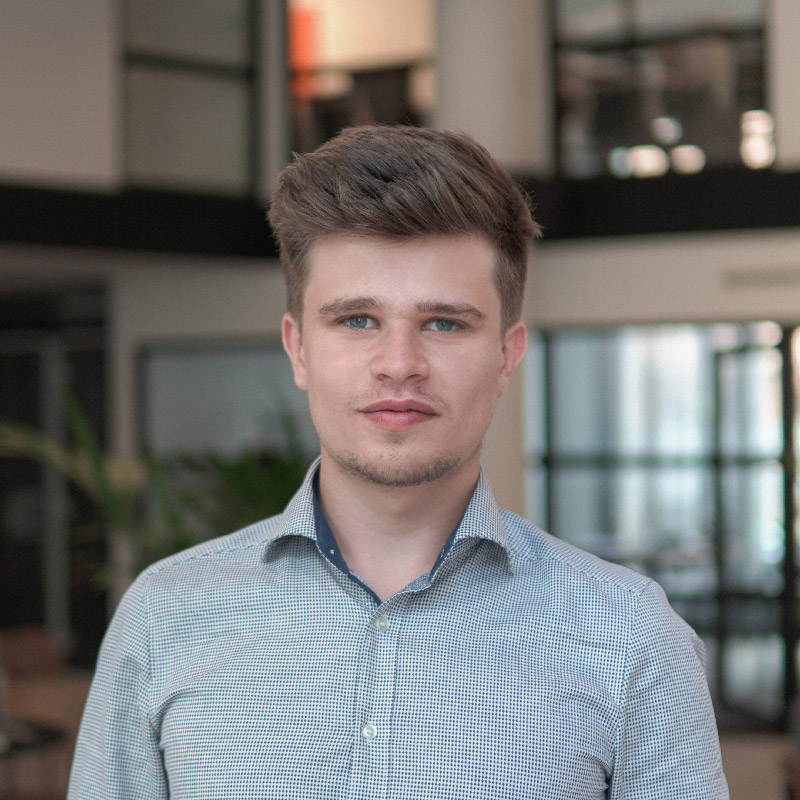
Any questions? Get in touch!
Leo Semmelmann, Founder
contact [at] researchgermany.com
+49 (0) 89 92927741
We are looking forward to help you in case of any questions, remarks and individual requests. Feel free to get in touch via email, live chat or phone. We can also offer you package prices and can create individual lists.

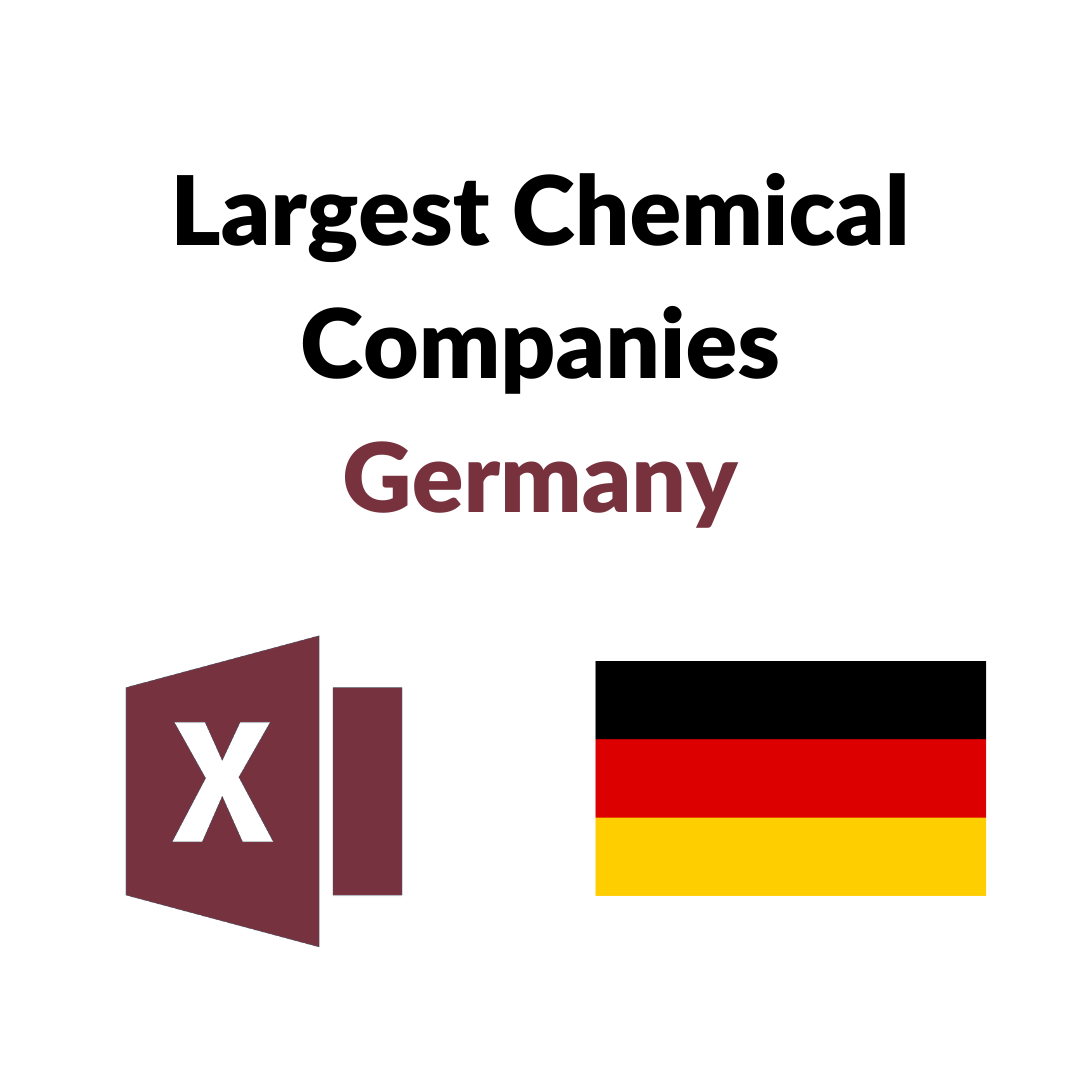
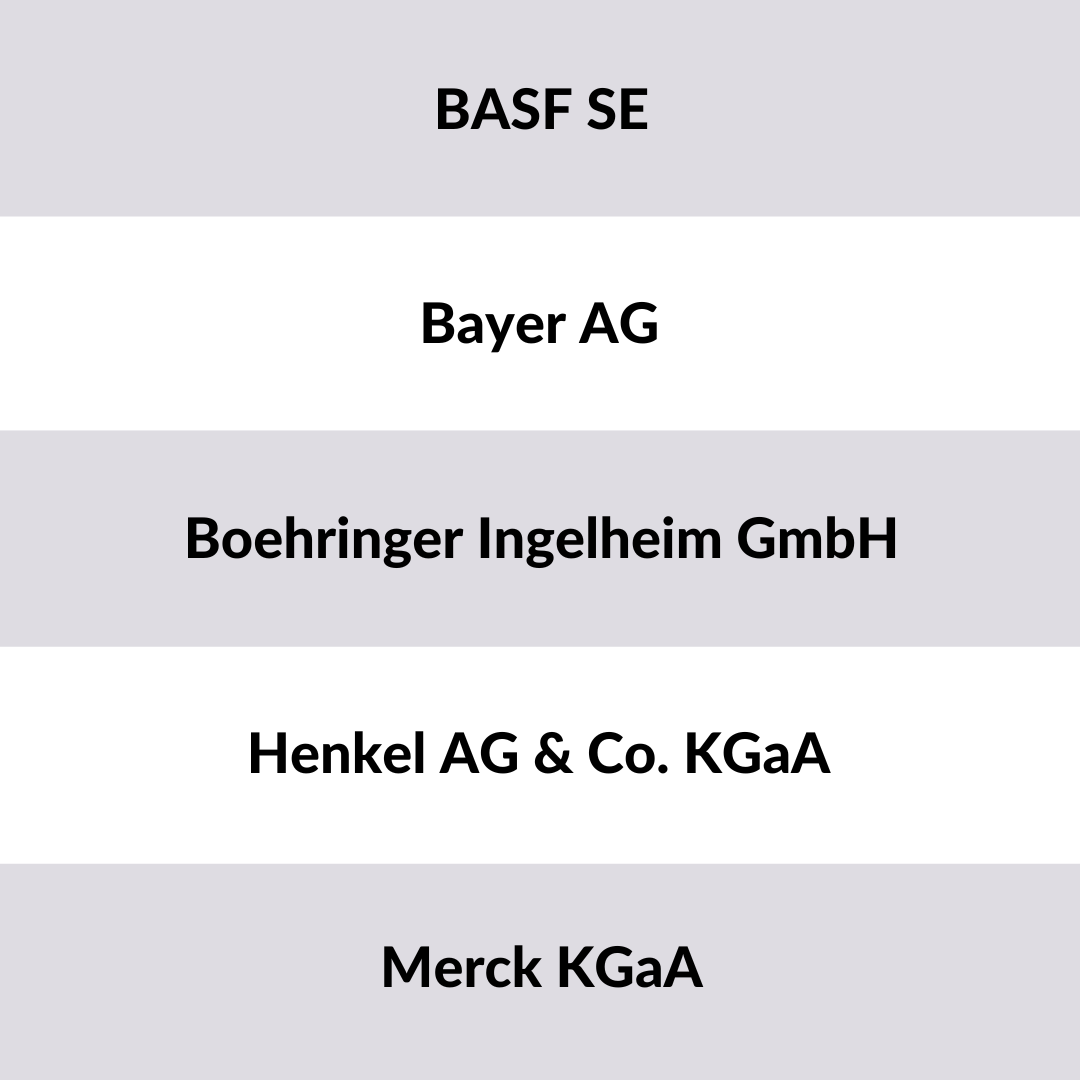
 Contains the 700 largest chemical companies in Germany from numerous sectors such as pharmaceuticals, cosmetics, construction chemicals, specialty chemicals, coatings and paints, agrochemicals, adhesives and sealants, etc. The list is an excerpt from our
Contains the 700 largest chemical companies in Germany from numerous sectors such as pharmaceuticals, cosmetics, construction chemicals, specialty chemicals, coatings and paints, agrochemicals, adhesives and sealants, etc. The list is an excerpt from our 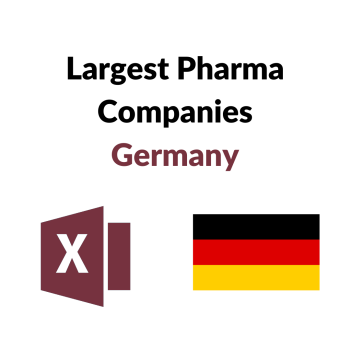
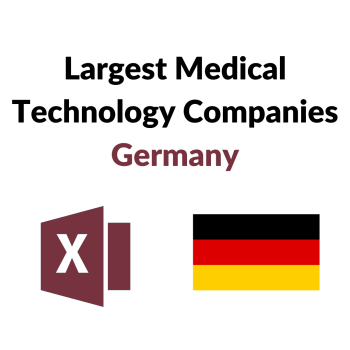
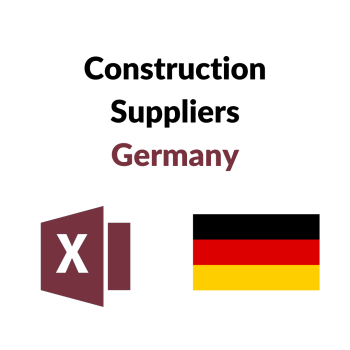
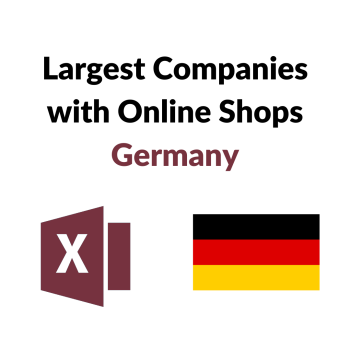
Alberto Di Lorenzo –
The database is comprehensive and well-researched. Even smaller “hidden champions” were identified, which is the most important aspect about this list for me. The only critical remark from my side: “field of activity” is useful but imho not 100% accurate in every case.